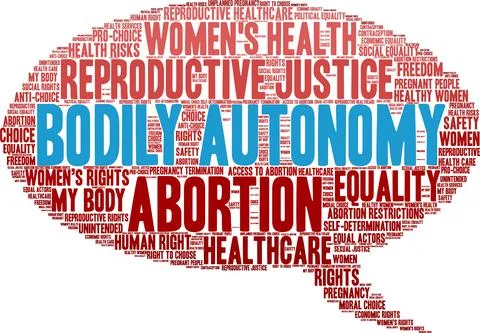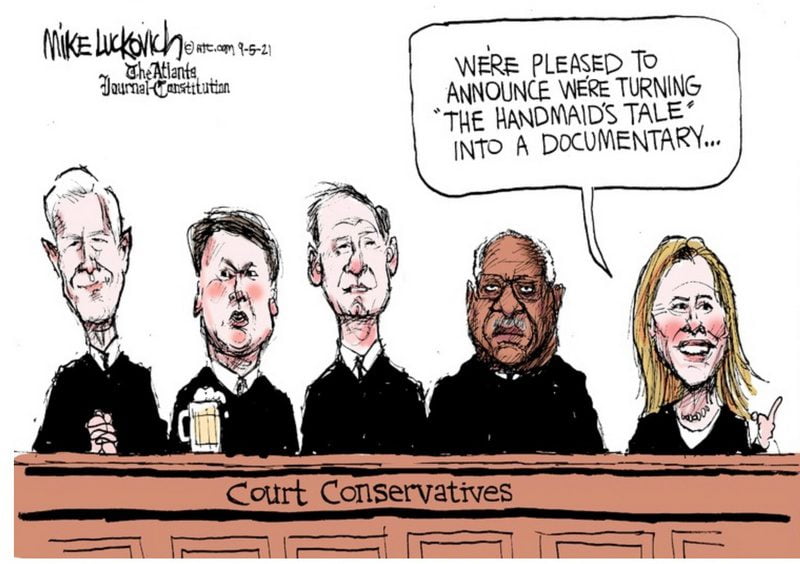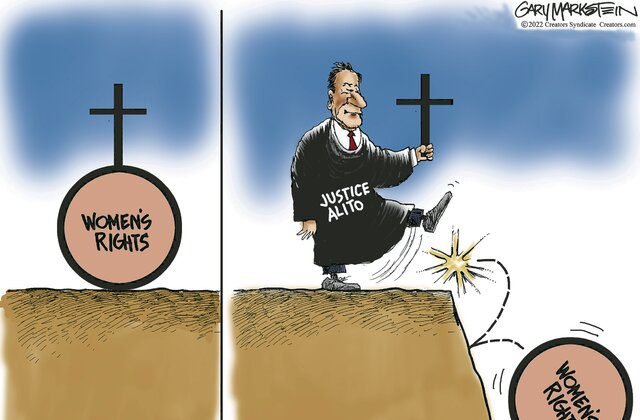
Bodily Autonomy: the right to make decisions about your body without coercion or violence. It’s a fundamental human right that allows people to make choices about their health, sexuality, and reproduction.
While no right is absolute, with few exceptions, each of us has the right to do what we want with our bodies. No government, religion, or individual has the right to force us to violate our bodily autonomy. There was a time when most Americans understood this principle. Even when another’s choice fundamentally runs against our personal beliefs or morals, we have no right to force people to act against their own self-interest. Of course, this principle has frequently been violated throughout our nation’s long history. In recent years, right-wing Republicans have used the power of the state to violate the bodily autonomy of both men and women. Republicans have even gotten between people and their doctors, forbidding medically necessary treatment, all because their moral or religious sensibilities are offended.
We see this most often in the culture war against reproductive rights. Republicans demand that women surrender their bodily autonomy to the dictates of an ancient religious text — the Bible, and their errant interpretations of the text. Abortion, in particular, is THE issue that drives the right’s immoral war against a woman’s right to choose. If Republicans had their way, there would be a federal abortion ban, without exceptions for rape, incest, and the life of the mother. Further, many Republicans want to criminalize abortion. Sadly, there is little difference between the moral pronouncements of many Republicans and Muslim Sharia Law. If given an opportunity, Republicans will ban abortion, in vitro fertilization, and some forms of birth control. No matter how many state constitutional amendments are enacted protecting reproductive rights, Republicans intend to ignore the will of the people.
Women have a fundamental right to choose whether to carry a pregnancy to term. The choice is theirs alone. Not their husband’s; not the government’s; not God’s. Theirs alone, end of discussion. It is their body that is affected and changed by pregnancy. In what other scenario do we allow people to intervene in the medical care of others? As long as a person is mentally competent to make their own decisions, they have the right to do what they want with their body. My body, my choice, applies to all of us.
But what about the “baby,” Bruce? What about it? Eighty-eight percent of abortions take place during the first trimester, long before what’s growing in a woman’s womb is a baby. Even when it comes to third-trimester abortions, most terminations take place due to fetal abnormalities. At no point do women surrender their right to bodily autonomy.
Let’s suppose I need a kidney. Without a transplant, I will die. After testing, I find out that my brother is a match. I go to my brother and ask him to give me one of his kidneys so I can continue to live. My brother says “no.” Should my brother be forced to give me one of his kidneys? Even though I will die if he doesn’t do so, he has a fundamental right to say no. His body, his choice. The same goes for pregnant women. No woman should be forced to carry a pregnancy to term. Her body, her choice.
But, Bruce, God says . . . the Bible says . . . I think abortion is murder. What God, the Bible, or you say doesn’t matter. The woman’s body is her’s alone, and no one has the right to force her to do anything against her will. I know this is hard for conservative Christians to hear, but what you “believe” plays NO part in what a woman does or doesn’t do with her body. Think abortion is morally wrong? Fine, don’t get one. You would be rightly offended if non-Christians stuck their noses in your medical decisions; so it is when you stick your nose in the medical decisions of women.
For Evangelicals planning to post Bible verses in the comment section, don’t bother. Your proof texts are anything but. The Bible has little, if anything, to say about abortion. The notion that life begins at conception is not found in Scripture. Oh, you can massage and twist a few verses to justify your attacks on bodily autonomy, but careful exegesis suggests that your interpretations are wrong.
Bruce Gerencser, 68, lives in rural Northwest Ohio with his wife of 47 years. He and his wife have six grown children and sixteen grandchildren. Bruce pastored Evangelical churches for twenty-five years in Ohio, Texas, and Michigan. Bruce left the ministry in 2005, and in 2008 he left Christianity. Bruce is now a humanist and an atheist.
Your comments are welcome and appreciated. All first-time comments are moderated. Please read the commenting rules before commenting.
You can email Bruce via the Contact Form.




